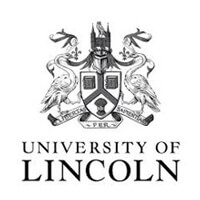fees waived
Criminology and Social Policy, BA (Hons)
University of Lincoln, United Kingdom
Subject ranking
UK / The Times 20th
UK / The Times 30th
UK / The Times 36th
Costs
food & rentS$16.8K / year
Entry requirements
Scholarships
Unlimited quantity
Unlimited quantity
Unlimited quantity
Unlimited quantity
Limited quantity
Limited quantity
Information
Code
Code
Intakes
Website (External)
Programmes
Information
Duration
2028
Course summary
This BA (Hons) Criminology and Social Policy degree aims to give students the opportunity to study the nature, causes, control and prevention of criminal behaviour, alongside an examination of how social policy is created and how it influences the way we live. Criminology and social policy are interdisciplinary subjects that draw on many aspects of the social sciences. Students may use a variety of approaches to examine crime, criminal justice, poverty, social exclusion and inequality, and other social issues, tackling difficult and often controversial topics, including current issues in the news. These subjects draw on links with local employers, such as criminal justice agencies and councils, to enable students to learn from real-world knowledge and practices. In the first year, students study images of crime and criminal justice, key social science concepts, social issues and justice, as well as applying research skills to social problems. Students can build on these foundations in year two and may choose from a range of optional modules influenced not only by social policy and criminology, but also sociology and politics. In the third year, students can study punishment theory and policies, community and conflict, and policy making, and may choose to specialise in diverse topics including families, human rights, genocide and civil society, again drawing on a number of the School’s subjects. For the most up to date module information, please visit the course page for this programme on our website. Some programmes provide you with the opportunity to focus your study in a particular area through optional modules. Timetabling arrangements may limit the availability of some optional modules to some students. As the options often reflect staff research interests, they may alter over time due to staff availability. The way students will be assessed on this course will vary for each module. It could include coursework, such as a dissertation or essay, written and practical exams, portfolio development, group work or presentations to name some examples. Throughout this degree, students may receive tuition from professors, senior lecturers, lecturers, researchers, practitioners, visiting experts or technicians, and they may be supported in their learning by other students.Modules
Assessment method
In the first year, students study images of crime and criminal justice, key social science concepts, social issues and justice, as well as applying research skills to social problems. Students can build on these foundations in year two and may choose from a range of optional modules influenced not only by social policy and criminology, but also sociology and politics. In the third year, students can study punishment theory and policies, community and conflict, and policy making, and may choose to specialise in diverse topics including families, human rights, genocide and civil society, again drawing on a number of the School’s subjects. For the most up to date module information, please visit the course page for this programme on our website. Some programmes provide you with the opportunity to focus your study in a particular area through optional modules. Timetabling arrangements may limit the availability of some optional modules to some students. As the options often reflect staff research interests, they may alter over time due to staff availability.
A local representative of University of Lincoln in Singapore is available online to assist you with enquiries about this course.

